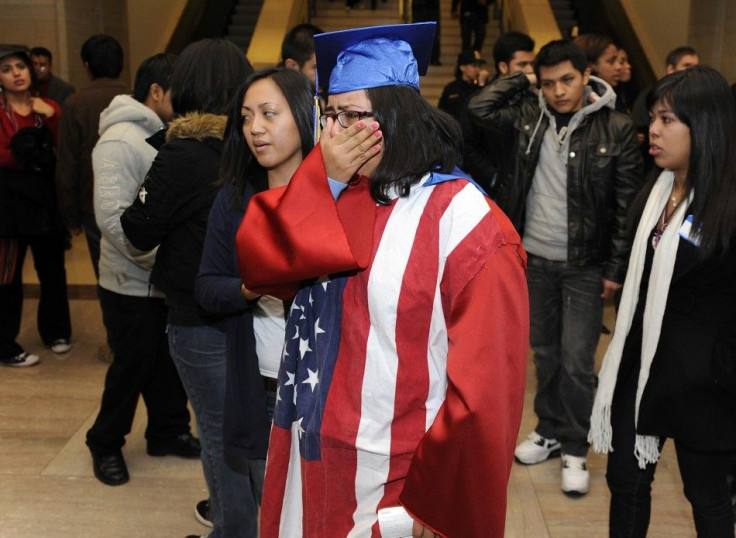California "Dream Act" approved for illegal immigrants

California Governor Jerry Brown signed into law on Monday a bill allowing illegal immigrants to receive privately funded scholarships to attend the state's public colleges and universities.
The bill, dubbed the California Dream Act, passed the state Legislature earlier this month and aims at helping illegal immigrants who earned a diploma after attending at least three years of high school in the state.
Enactment of the California measure came three days after opponents of a similar law in Maryland collected enough signatures to force a state referendum seeking its repeal.
"At the end of the day, if we're going to continue as a powerful, equal-opportunity society, we're going to have to invest in our people," Brown, a Democrat, said at the signing ceremony in the library of a Los Angeles community college.
The California law is named after national legislation in Congress to give young, undocumented immigrants who have lived in the United States for at least five years a pathway to citizenship through college or military service.
The federal bill failed to win passage in December 2010, and its chances have dimmed since a newly elected Republican majority took control of the House of Representatives.
Critics say the California Dream Act gives illegal immigrants a false promise because their status will not change after graduating from college and they will remain unable to find legal employment. Former Governor Arnold Schwarzenegger, a Republican, vetoed an earlier version of the bill last year.
But Julian Rivera, 20, a student at the University of California at Berkeley who entered the United States illegally with his parents at age 12 from Mexico, said the measure could make it easier those like him to afford to stay in school.
"It doesn't matter where you come from, it doesn't matter what your background is, it just matters that you have passion for something and you want to do it," he said. "This is a country that has given us that freedom."
OPPOSING "THE DREAM"
Patrick McDonough, a Republican member of the Maryland House of Delegates who helped lead the petition drive for the repeal initiative there, said U.S. citizens who are struggling to pay for college should not have to compete with illegal immigrants for scarce financial resources.
"People would say, 'Why should we, when we're having tough economic times ourselves, pay for someone who is here illegally?'" he said.
The new California law is fairly limited in scope, making undocumented students who qualify eligible for private scholarships. A separate bill under consideration in the legislature would allow illegal immigrants to seek publicly funded scholarships as well.
State law already allows illegal immigrants who qualify for admission to a four-year state university to pay in-state tuition rather than the more expensive out-of-state tuition rate. But four-year institutions are still beyond reach for many undocumented students without financial aid.
Twelve other states also grant in-state tuition eligibility to illegal immigrants based on attendance and graduation from a state high school, according to the National Conference of State Legislatures.
Arizona, Colorado, Georgia, South Carolina and Indiana have laws barring illegal immigrants from in-state tuition benefits.
Passage of legislation in California and Maryland to extend private scholarships to illegal immigrants comes as a number of states, led by Arizona, have taken steps to crack down on the undocumented.
"You're going to see the red states go more the Arizona approach and blue states the California Dream Act approach," said John Skrentny, director of the Center for Comparative Immigration Studies at University of California, San Diego.
© Copyright Thomson Reuters 2024. All rights reserved.





















